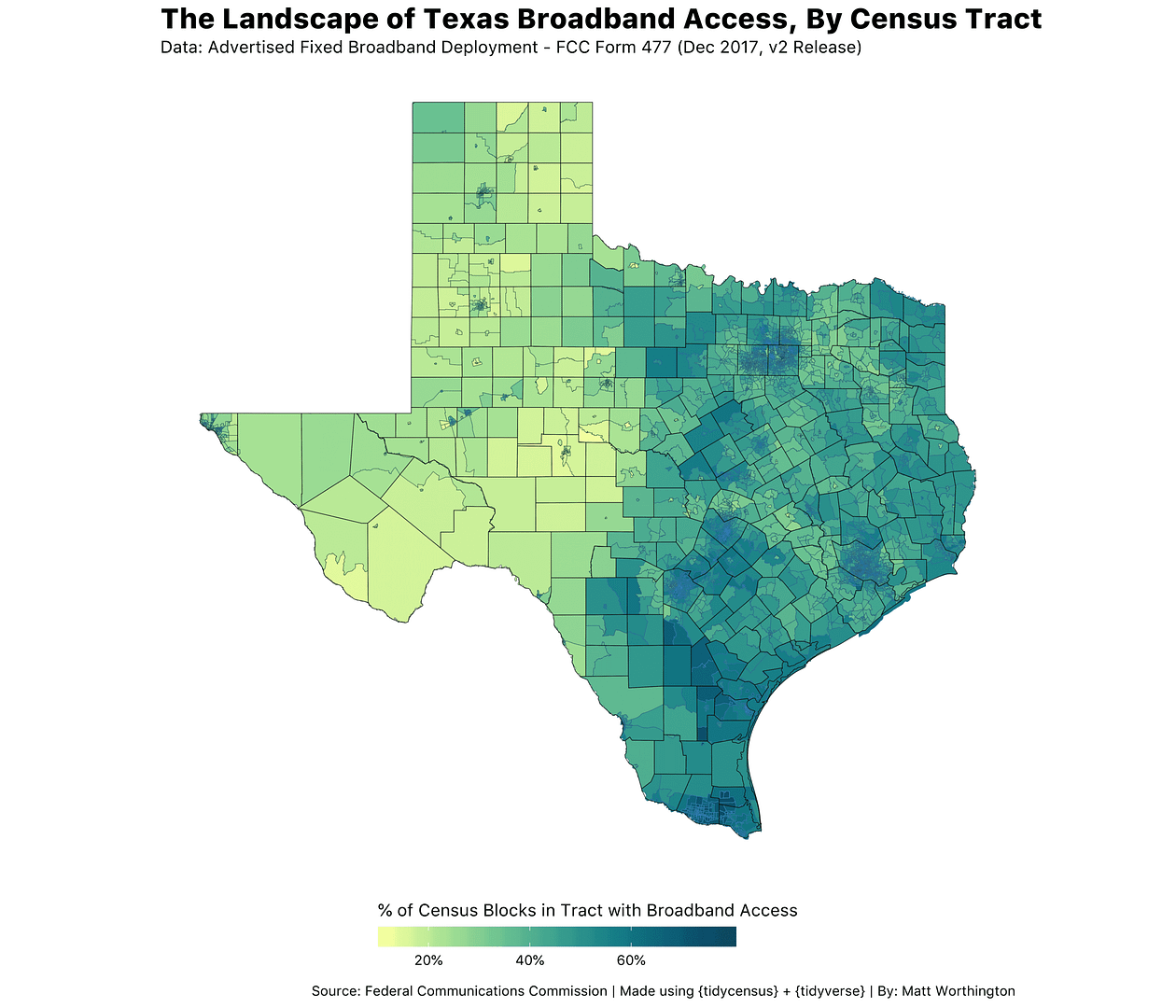On this Cyber Monday, retailers across the country are trying to entice consumers to sit down at their computers or pull out their phones, do some scrolling, enter a credit card number and cross a few items on their shopping lists.
But what about Texans for whom that isn’t so easy?
More than a third of Texas households — 35 percent — do not subscribe to fixed broadband services at the Federal Communication Commission’s basic speed standard, placing Texas 37th among states in broadband adoption. This is a major concern in rural Texas, where homes often lack broadband access, but it also affects those who live in and around urban areas. In fact, five Texas cities (Dallas, Houston, San Antonio, El Paso, Corpus Christi) are among the 25 large American cities where residents are most likely to not be using broadband, whether it’s because of access, cost, or other factors.
The stakes here, of course, are far greater than whether someone can order a gift through a Cyber Monday sale. A lack of broadband access limits Texans’ ability to learn and fully participate in the economy. We are going to need more Texans with an education and training in technology to fill the millions of jobs that will be created here in coming years.
Just like our highways and electric grid, our broadband networks are critical components of our infrastructure. Greater use of broadband will expand opportunities for the people of our state, which is why strategic planning is critical. In fact, Texas 2036 will be working with an organization named Connected Nation next year to look at better ways to map where broadband gaps exist. Finding these gaps is an important first step toward addressing the problem.

